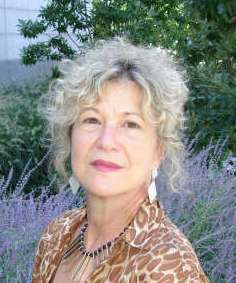
![]()
Pronunciation Corner
Joyce Mandell
 |
| Joyce Mandell |
Icebreakers for First Day of Classes
We’ve all been there- the first day of classes with a group of students who are total strangers. They eye each other shyly, not knowing what to expect from their class called “Pronunciation for Clear Communication” or “Clear and Accurate Speech” or some other title that describes the focus for the next several weeks or months. Often, students are sitting there with pen and paper, poised and ready to write down information, as if it were some kind of lecture class that they needed to take notes for. The tone that is set at the initial class meeting will very much affect the success of the class from that day on, so first day activities are of crucial importance.
Icebreakers serve a dual purpose. First of all, they lower the affective filter of the class and build up the trust level of the participants. A pronunciation/accent modification class is, by nature, a very intimate affair. It demands working together closely as a team because so much is based on partner work, self-monitoring and peer monitoring, and choral repetition. Icebreakers open up the channels of laughter and human connection. Secondly, the first day icebreaker activities give the instructor a chance to listen to and evaluate the students’ pronunciation in a natural and spontaneous setting that is clearly reflective of how they communicate on a daily basis in real life.
As students enter the classroom on the first day and before I even give out the syllabus, I tell them that we are going to play a game so that we can get to know each other better. The one I like a lot is based on the Bingo game, and it gets students up and out of their seats and moving about. I give out sheets of paper divided up into 12 squares. In each square is a statement – “Someone who never drinks coffee” or “Someone who plays a musical instrument” or “Someone who speaks more than three languages.” The instructions are very clear – at my signal, students must mill about the room talking to everyone and filling in the appropriate square with someone who qualifies for that question. The three important rules are as follows - first, you must greet and introduce yourself (first and last name) to each other; second, you cannot stay with one person for more than two correctly answered questions (the purpose, after all, is to mingle with the most amount of people); third, when the person qualifies for one of the squares, you write their name in the appropriate box. The first person who can fill in a name for all the squares is the “winner” and I award a small prize. I usually participate in this exercise, walking around the room and making sure people move along and mingle with as many members of the class as possible. Students can also ask me questions and see if I qualify for one of the squares.
The second part of the exercise is the de-briefing. We go through all the answers, finding out which other students never drink coffee, have an unusual habit, or own more than two pets. At this point, students seem to have become energized and enthusiastic about their new classmates. They’ve also had a chance to discover where they might have had trouble communicating effectively; for example, if they are somewhat difficult to understand it will clearly show up in this exercise. Most of all, it transforms a group of strangers into a friendly learning community, one that is ready to tackle some of the challenges involved in pronunciation improvement.
_____________________________________________________________________
Joyce Mandell has been teaching speech and pronunciation skills to the non-native speaker for over 15 years, working in a variety of educational and business settings. She is an adjunct at Baruch College in both Continuing and Professional Studies and the Communication Studies Department, where she teaches public speaking. She also works individually with business professionals.
Feel free to contact her with questions or suggestions at dialogue@nystesol.org.
